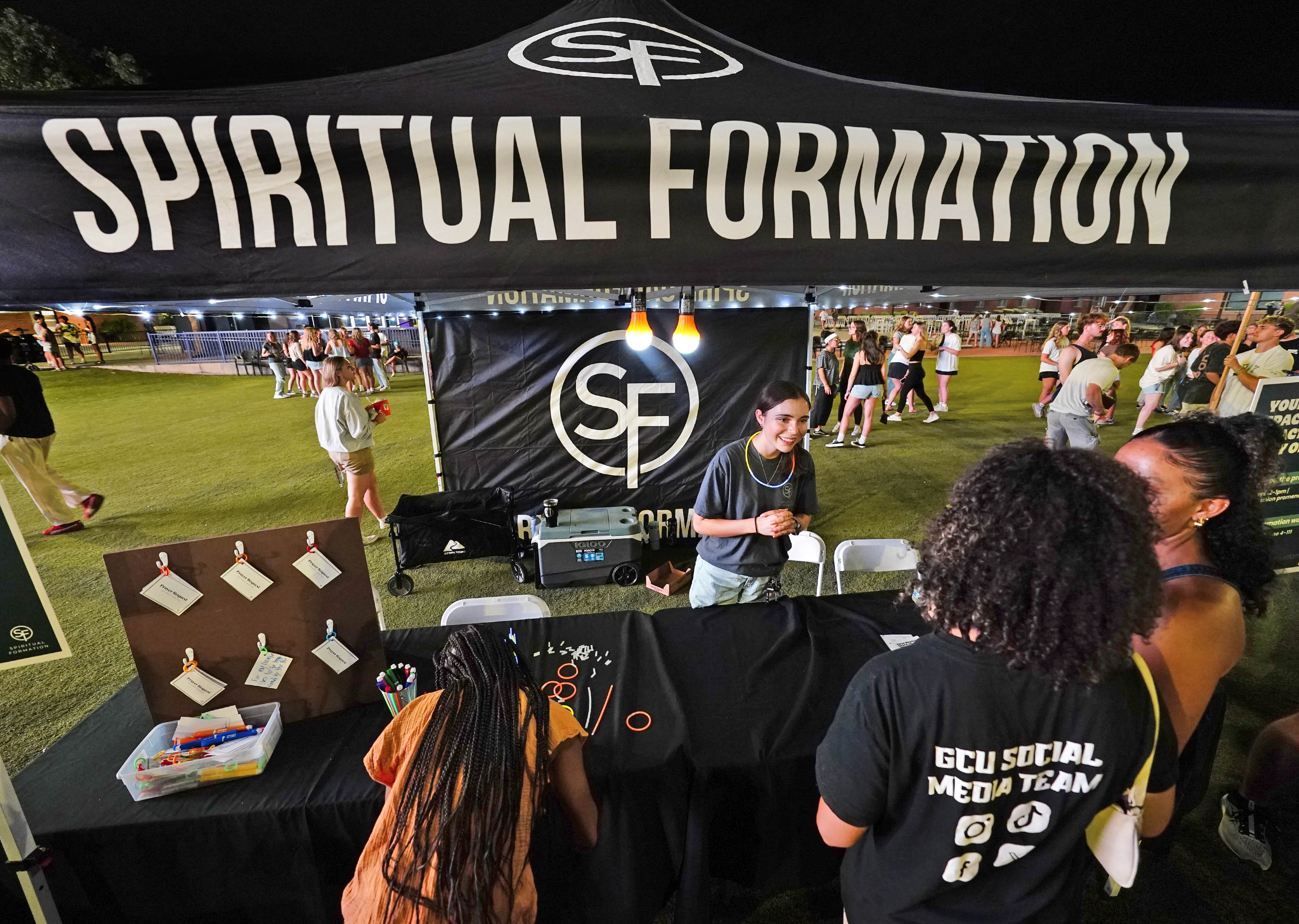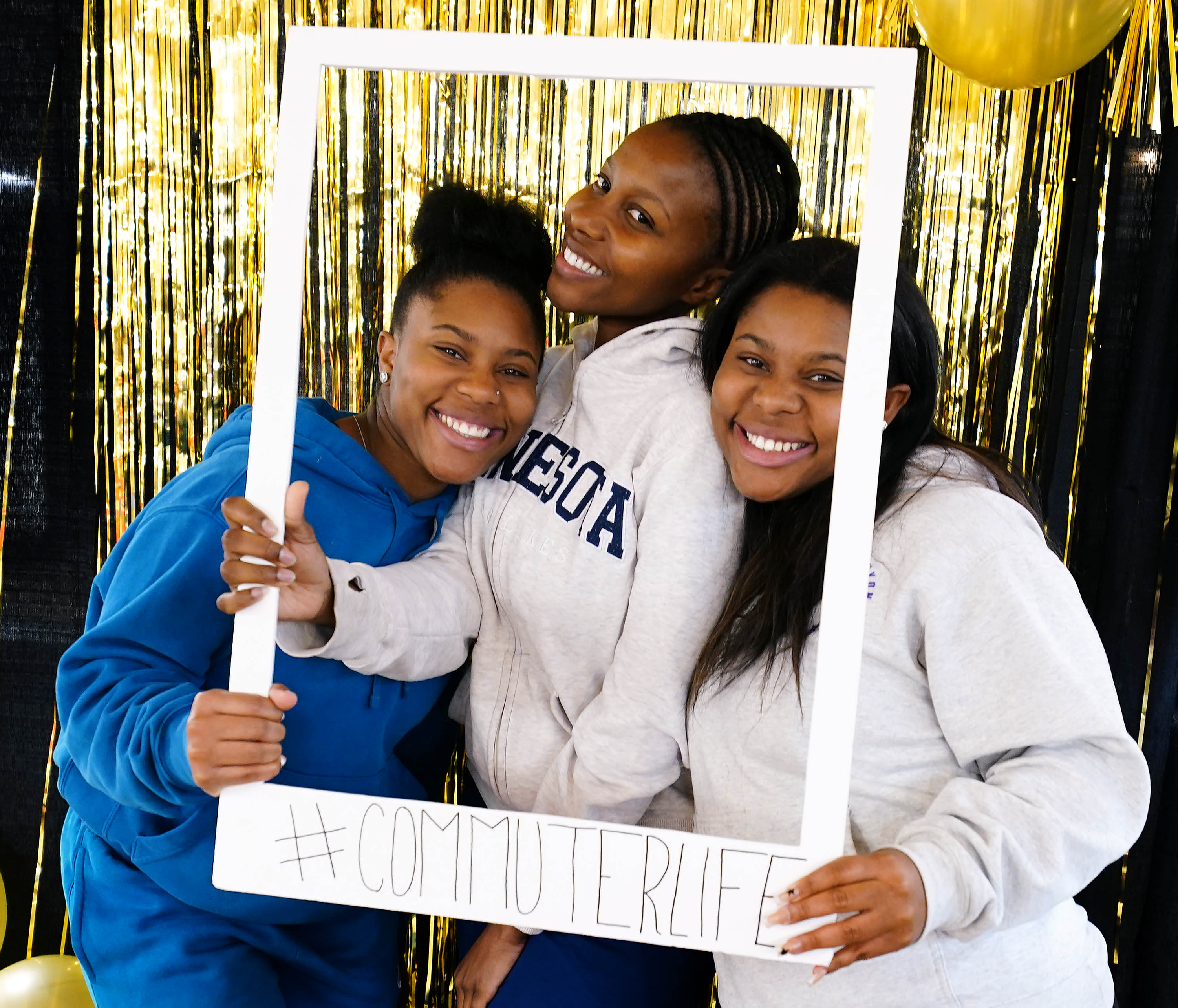By Michael Ferraresi
GCU News Bureau
Abuse comes in many forms. Verbal. Physical. Elder. Child. Substance. It impacts men and women of all ages.
Acquaintance rape and date rape – even partner rape -- are included in nearly a dozen variations of sexual abuse, or “sexual violence,” according to the Rape, Abuse & Incest National Network.
| 'BLUE LIGHT' EMERGENCY BOXES | |
| GCU Public Safety manages eight emergency call boxes marked by blue lights around campus. Those boxes provide a direct call into a separate emergency call line managed by GCU's security dispatchers.For more information on campus safety and sexual abuse prevention, contact GCU's Public Safety office at Camelback Hall or call 639.8100. |
Those types of sexual abuse committed by men familiar with their victims tend to stand out on university campuses, where teens and young adults mix together in a largely residential community. Research listed on RAINN.org suggests that nearly 75 percent of women who report rapes were younger than 25 years old when they were attacked.
The U.S. Justice Department “estimates that fewer than 5 percent of completed and attempted rapes of college women are reported to law enforcement officials,” RAINN cited on its website.
RAINN speaker Akili Worthy said she was victimized by her stepfather when she was in grade school. The Ahwatukee resident, now 35 and working as a Christian life purpose coach, said she is still patching relationships with family members who refused to admit to the patterns of intimidation and abuse that haunted her as a little girl.
Worthy said female college students should consider their surroundings in just about any situation. Parties with alcohol, intimate dates, or simply taking a walk with someone you just met, could all involve attackers known to the victim.
The National Institute of Justice reported that more than 43 percent of attempted rapes, and a comparable percentage of completed rapes, are committed by a classmate. The same research showed that 34 percent of completed rapes and 24 percent of attempted rapes are committed by a friend.
Abuse ranges from unwanted touching that might not be considered indecent, but that’s still sexual in nature, to more tragic cases of attacks by strangers who choose to prey on unsuspecting women. In those cases, Worthy said:
“Make as much noise as possible,” Worthy said. “You want to scream, yell, break a window – draw attention to your situation when you’re actually in danger.”
Young women especially should be mindful of how they could appear to others in situations where they’re walking alone or not totally aware of where they’re headed.
“You want to be very alert of your surroundings or the people you’re with,” Worthy said. “Travel with a friend. Make sure everywhere you go is well-lit.”
“You want to look like you have an intended place to go,” she said.
Other sexual assault prevention tips, according to RAINN.org and other sources:
Put personal safety ahead of peer pressure. Trust your instincts. Leave the party early, text a friend to pick you up from your date, or lie about why you’re leaving if you have to -- just get away. Your safety comes before a friend's or partner’s feelings in a situation where you’re uncomfortable or made to feel unsafe. Sharing a dorm or class doesn’t make a student trustworthy. “Just because a person goes to your school, knows your friends, or spends time at your favorite hangouts doesn’t mean they’ll look out for your best interests,” according to RAINN. “Get to know people first and then decide whether to trust them.”
Have your friend’s back. Stick together. Be mindful of your surroundings. Walk together, especially at night or during times on campus where not too many people are out. At parties or events, or off-campus, be mindful of friends acting out of character or frightened. Your attention to detail may reveal a situation where your friend feels targeted by a potential attacker. If you’re ever in fear for your immediate safety, dial 911 for help. Phoenix Police Crimestop (602.262.6151) is also available for non-emergency crime reporting.
Know your surroundings near your car. At night or in a parking garage, or during less-traveled hours, women should be particularly direct in their activity around their cars. Have your keys in your hand before you get to the door. Make sure the doors are locked if you are uncomfortable.
Use your phone intelligently. If you’re leaving campus or walking alone, be sure your phone is charged and nearby in case of emergency.
Use social media intelligently. “Posting social media updates about your whereabouts, even your class schedule, could allow someone to track your every move,” RAINN warns. “If you wouldn’t give that information to a stranger, then don't put it online.”
Contact Michael Ferraresi at 639.7030 or [email protected].















